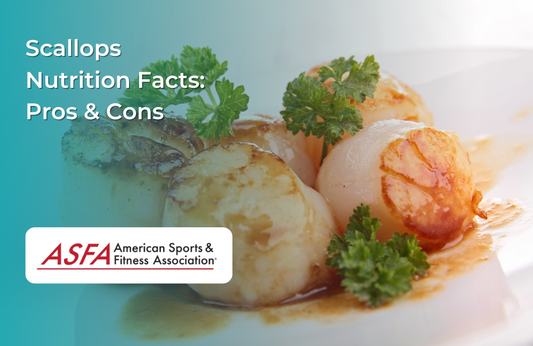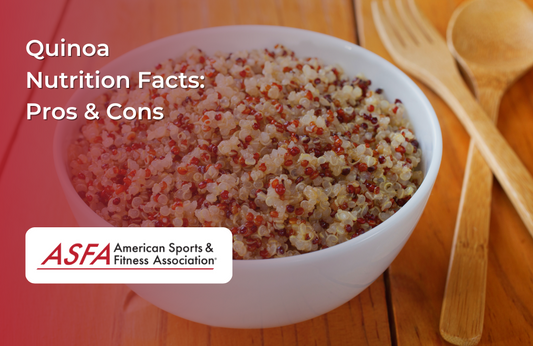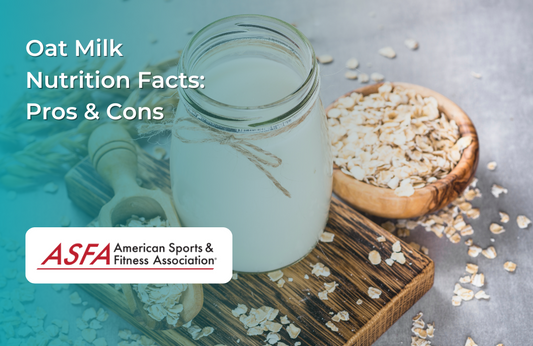What is Sports Nutrition
Sports nutrition is the science of fueling the body for optimal athletic performance, recovery, and overall health. The caloric needs and nutritional requirements of active individuals often exceed those of the average person, due to increased energy expenditure and specific demands for recovery and growth.
It focuses on balancing macronutrients, micronutrients, and hydration to support the unique energy demands of physical activity. Sports nutrition emphasizes fuelling active individuals by meeting their higher caloric needs and supporting their training demands.
Unlike general nutrition, sports nutrition is tailored to the intensity, duration, and type of training an athlete engages in, ensuring that the body has the resources it needs to perform and recover effectively. When considering dietary protein, the amino acids it provides are essential for muscle repair and recovery in active individuals.
Why Sports Nutrition Matters
Nutrition plays a critical role in athletic performance. Without the proper balance of nutrients, and without consuming adequate calories to support performance and recovery, athletes may experience fatigue, slower recovery, or increased risk of injury. A well-designed diet supports energy levels, enhances endurance, promotes muscle repair, and strengthens immunity. Protein and fat are essential macronutrients that contribute to muscle repair, provide energy, and support overall health. For both recreational and competitive athletes, sports nutrition is the foundation that enables consistent progress and long-term health.
Key Principles of Designing a Sports Nutrition Plan
Creating an effective sports nutrition plan requires an understanding of the body’s specific needs during training and recovery. Important principles include:
-
Balancing macronutrients: Carbohydrates provide energy, proteins support muscle repair and growth, and fats aid in hormone production and long-term energy use. It's important to determine individual protein needs based on activity level and body weight to optimize performance and recovery.
-
Timing of meals: Consuming the right foods before, during, and after workouts maximizes performance and recovery. Include simple carbohydrates for quick energy before workouts when time is limited, and fibrous carbohydrates for sustained energy release. For pre-exercise nutrition, aim for a meal high in complex carbohydrates 2-4 hours before activity to ensure adequate energy supply.
-
Hydration strategies: Adequate fluid intake supports endurance, regulates temperature, and prevents dehydration.
-
Micronutrient intake: Vitamins and minerals play essential roles in energy production, muscle function, and overall health.
When choosing carbohydrate sources, consider options like whole grain cereals and fibrous carbohydrates to support sustained energy and digestive health.
These principles ensure that nutrition is not only supportive but also performance-enhancing. Creating a structured meal plan helps ensure all nutritional needs are consistently met.
Customizing Diets for Different Athletes
Athletes across different sports require unique approaches to nutrition. Endurance athletes may need higher carbohydrate intake to sustain energy, while strength athletes often benefit from increased protein to support muscle growth. Team sports players require a balance of both, as they need endurance for long games and power for explosive movements. Caloric needs vary significantly between different types of athletes and must be considered when customizing diets, as athletes' energy requirements often exceed those of the average person. Athletes engaging in higher intensity training sessions may require adjustments in their diet to meet increased energy and nutrient demands. Fuelling strategies should be tailored to the specific sport and training intensity to optimize performance, growth, and recovery. Customizing diets ensures that athletes get the precise fuel they need for their specific training and competition demands.
Macronutrient and Micronutrient Needs
For athletes aiming to reach peak performance, understanding the right balance of macronutrients and micronutrients is essential. Carbohydrates should make up 55-65% of total daily calories, with an emphasis on complex carbohydrates like whole grain bread, brown rice, and quinoa to provide sustained energy for training and competition. Protein intake is equally important, with most athletes benefiting from 1.2-1.6 grams of protein per kilogram of body weight each day. This level of dietary protein supports muscle protein synthesis, muscle repair, and the development of lean muscle mass. Excellent sources of protein include lean meats, fish, eggs, dairy products, and plant-based foods such as legumes and nuts. Healthy fats, found in foods like avocados, seeds, and nut butters, should account for 20-30% of daily calories, supporting hormone production and long-term energy needs. In addition to macronutrients, athletes must ensure they are getting adequate vitamins and minerals, as these micronutrients play a key role in energy production, muscle function, and overall health. Prioritizing a balanced intake of these nutrients helps athletes fuel their bodies for improved performance and recovery.
Hydration and Electrolytes
Hydration is a cornerstone of sports nutrition and directly impacts athletic performance. Most athletes should aim for at least 8-10 glasses of fluid daily, adjusting for sweat loss and climate. For endurance activities or high intensity training sessions lasting over an hour, sports drinks can be especially beneficial, as they provide not only fluids but also essential electrolytes like sodium and potassium. These electrolytes help maintain fluid balance, prevent muscle cramping, and support optimal performance during longer or more intense workouts. For shorter or moderate intensity activities, water is usually sufficient to meet hydration needs. Monitoring urine color is a simple way to check hydration status—pale yellow indicates adequate fluid intake. In addition to sports beverages, athletes can boost electrolyte intake with foods such as bananas, oranges, and coconut water. Maintaining proper hydration and electrolyte balance is vital for most athletes to perform at their best and recover efficiently.
Pre Event Nutrition
A thoughtfully planned pre event meal can make a significant difference in athletic performance. Consuming a meal 1-3 hours before competition or a training session helps ensure the body has the energy it needs to perform at its best. The ideal pre event meal should include complex carbohydrates for sustained energy, moderate protein to support muscle function, and healthy fats for satiety. For example, oatmeal topped with fruit and nuts, whole grain toast with avocado and eggs, or a smoothie bowl made with Greek yogurt, berries, and spinach are all excellent choices. Hydration is equally important—drinking adequate fluids, such as water or sports drinks, in the hours leading up to the event helps maintain fluid balance and prevent dehydration. A well-balanced pre event meal supports energy levels, reduces the risk of digestive discomfort, and helps athletes start strong.
Staying Fueled During Exercise
Maintaining energy and hydration during exercise is crucial for sustained performance, especially during longer or more intense training sessions. For activities lasting over 60 minutes, sports drinks or energy gels can provide a quick source of carbohydrates and electrolytes to keep energy levels steady. For shorter sessions, water and simple, electrolyte-rich foods like oranges or bananas may be all that’s needed. Some athletes also benefit from portable snacks such as energy bars, trail mix, or dried fruit, which are easy to consume on the go and help replenish energy stores. It’s important for athletes to listen to their bodies and adjust fueling strategies based on individual needs and the demands of the sport. Practicing different fueling options during training sessions allows athletes to find what works best for them, ensuring they stay energized and focused throughout exercise.
Recovery Nutrition
Effective recovery nutrition is key to supporting muscle repair, replenishing energy stores, and reducing muscle soreness after exercise. Within 30-60 minutes post event or training session, athletes should aim to consume a meal or snack that combines carbohydrates and protein. This could be as simple as a banana with peanut butter, a protein smoothie made with low fat milk and fruit, or a turkey and avocado wrap on whole grain bread. Rehydration is also critical—drinking water or a sports drink helps replace fluids lost during exercise. Including anti-inflammatory foods such as berries, nuts, and fatty fish in the diet can further support recovery and reduce inflammation. By prioritizing recovery nutrition, athletes can return to training sooner, build muscle mass, and maintain high levels of athletic performance over time.
Practical Steps to Design a Diet
When designing a sports nutrition plan, professionals should remember the following tips to guide the process:
-
Assess the athlete’s training schedule, competition goals, and daily energy expenditure.
-
Establish macronutrient ratios based on activity type and intensity.
-
Develop meal plans that include a variety of whole foods to meet nutrient needs, such as non starchy vegetables (like broccoli and leafy greens), fruits, and a range of vegetables for balanced nutrition. Incorporate plant foods such as nuts and seeds to provide healthy fats and essential micronutrients.
-
Emphasize hydration strategies tailored to climate and training conditions, and track weight lost during exercise to determine proper rehydration and recovery strategies.
-
Include recovery-focused meals rich in protein and carbohydrates to repair muscles and replenish glycogen stores. Snack options can include a granola bar, cottage cheese with fruit, or a glass of orange juice.
-
Highlight the importance of eating before, during, and after exercising to optimize performance and recovery.
These steps provide a framework for building effective, personalized nutrition plans that maximize performance and support health.
Long-Term Benefits of Proper Sports Nutrition
Beyond immediate performance gains, proper sports nutrition delivers long-term benefits. It reduces the risk of overtraining and injury, improves recovery, and promotes sustainable energy for training cycles. Consistent adherence to a well-designed diet helps athletes build resilience, prolong careers, and maintain overall wellness. For recreational athletes, it supports not only performance but also everyday health and vitality.
Conclusion
Sports nutrition is essential for designing diets that support performance, recovery, and long-term health. By understanding macronutrient balance, hydration, and timing, professionals can create personalized plans that meet the unique needs of each athlete. A well-structured diet is not only fuel for activity but also a foundation for success in sport and in life.
FAQs
What is sports nutrition?
It is the science of using food and hydration to support athletic performance, recovery, and overall health.
Why is sports nutrition important?
It ensures athletes have the energy and nutrients needed to perform at their best, recover properly, and avoid injury.
What are the key components of a sports nutrition plan?
The plan should balance carbohydrates, proteins, and fats while also emphasizing hydration, micronutrients, and meal timing.
How do diets differ for different types of athletes?
Endurance athletes often require higher carbohydrate intake, while strength athletes benefit from more protein, and team players need a balanced approach.
What are the long-term benefits of sports nutrition?
It improves performance, reduces injury risk, enhances recovery, and supports sustainable health and energy for athletes of all levels.





